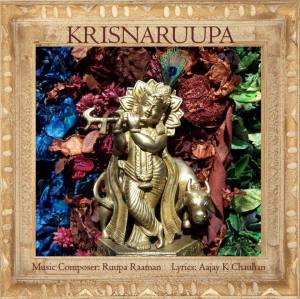CD review/ Swappnam – Music by Ilaiyaraaja
Swappnam – Dance, Theatre, Dreams
Music: Ilaiyaraaja
Genre: Classical dance music/ Carnatic/ devotional
Label: Purple note
Price: Rs 150
Rating: *****
ONE of India’s greatest composers ever, Ilaiyaraaja has recently been in the news for providing the music for the Amitabh Bachchan-Dhanush Hindi film ‘Shamitabh’. On a more traditional note, he has also composed ‘Swappnam’, a dance ballet based on a performance by Bharatnatyam exponent Krithika Subrahmanian.
With a heavy Carnatic and devotional base dedicated to Lord Shiva, the 10 tracks take you through various emotions and situations like dreams of the young, adoration, romance, recognition, awakening, realisation, reverence, wisdom, dreams of the old and truth. The presence of talented vocalists like Poornima Satish, Sudha Raghunathan, Abishek Raghuram, Vasudha Ravi, Rajashree Pathak and Bharath Sunder lends variety.
The six-minute-plus ‘Dreams of the Young’ or ‘Aezhisayaai’ is a perfect opener. It begins with an orchestral portion played with a western classical feel and yet including Carnatic overtones, followed by Abhishek Raghuram’s vocal, set to a flute, veena, violin, mridangam and ghatam backdrop. ‘Adoration’, or ‘Kaadhaar Kuzhaiyaada’ is rendered with melodic brilliance in raag Jog by Poornima Satish and Vasudha Ravi. An extract of Adishankara’s Ardhanareeswara Ashtaka, ‘Romance’ or ‘Pradeepta Rathnojwala’ sung by popular Malayalam composer Shareth, Arunmozhi (who is actually Ilaiyaraaja’s flautist who otherwise goes by the name Napoleon) and group has excellent display of percussion.
One of the highlights is the sargam-driven voice symphony ‘Recognition’ or ‘Koovina Poonguyil’, sung by Poornima Satish and group, and beginning with the heavenly sound of birds humming. Sudha Raghunathan, Vasudha Ravi and Sreenivas team up on ‘Realisation’ or ‘Ammaye Appa’, whereas Rajashree Pathak makes apt use of raag Puriya Dhanashri on ‘Reverence’ or ‘Bhajeham’, which has the theme line ‘Bhajeham bhajeham shivoham shivoham’.
Bharath Sunder’s ‘Wisdom’ or ‘Aye Metha Kadinam’, composed by Gopalakrishna Bharathi, makes exquisite use of the veena. Swati Tirunal’s ‘Dreams of the Old’ or ‘Visweswara Darshan’, sung by Rajashree Pathak, Abishek Raghuram, is a melodic anthem rendered with a Hindustani feel in raag Sindhu Bhairavi with the lines ‘Visweswara darshan kar chalo man tum Kashi’.
The album concludes with a 30-second spoken stretch by Ilaiyaraaja on ‘Truth’ or ‘Anbum Shivamum’. It’s an apt ending to one of the best creations by the master-composer.
RATING SCALE: * Poor; ** Average; *** Good; **** Excellent; ***** Simply outstanding


